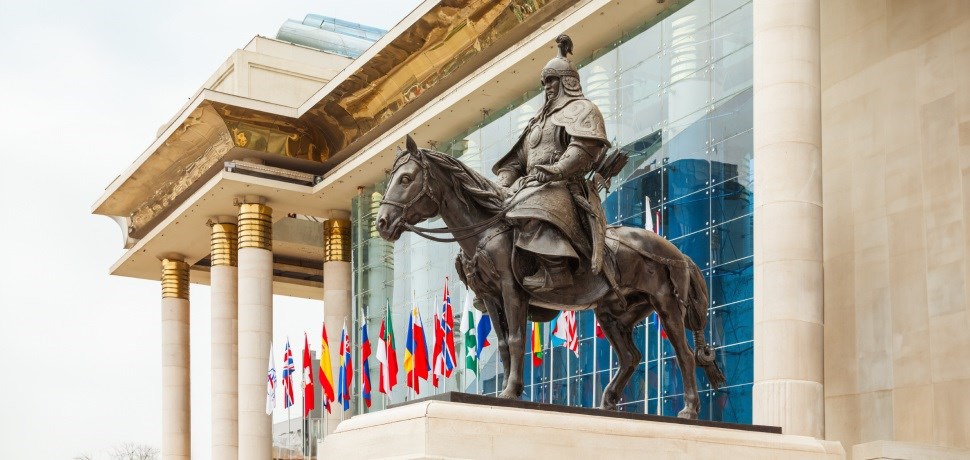I recently read “Genghis Khan and the Making of the Modern World” by Jack Weatherford. It was recommended by Yen Liow, a well-known investor and ex-professor at Columbia Business School. I greatly admire Yen, and Genghis Khan had a profound impact on him. So much so that Yen even named his hedge fund, Aravt Global, after one of Khan's smaller military units. Genghis Khan has often been remembered for his brutal conquests and military victories.
He was born an illiterate slave. But despite his difficult upbringing, his Mongol army of 200,000 soldiers conquered ten million square miles in 30 years. This is roughly the size of Africa. For context, the Romans took 400 years to do what the Mongols did in 30 years. Genghis Khan's army never lost a battle on land, they only lost two on sea. There is no army in history that has been this successful.
A closer examination of his military tactics reveals a surprising insight that is an important concept for investors to understand. Only engage in unfair fights. Khan's military strategy was built on the principle of selecting battles where the odds were heavily stacked in his favour. He would often target weakened or divided enemies, exploiting their vulnerabilities to achieve decisive victories. This approach allowed him to expand his empire rapidly, with minimal losses. Similarly, in investing, it's crucial to only engage in "unfair fights" – situations where the odds are heavily stacked in your favour. Never engage in a fair fight. This means only seeking out opportunities with a high potential for success while minimizing risk.
Here are some key takeaways from Khan's approach that can be applied to investing:
- Choose your battles wisely. The Mongols did not engage in a war that they did not believe they would convincingly win. A common technique used was to send spies and scouts, before an invasion, to enemy territory. The spies would sow seeds of dissension and scouts would watch the enemy closely. As the time for invasion came near, the spies would create psychological warfare which created doubt and confusion within the enemy territory. They prepared the enemy for defeat before the start of the main Mongol attack. If the spies and scouts were not able to create weaknesses in the enemy, no attack would take place. In investing, investors must not invest in every opportunity that comes your way. Be selective and focus on situations where you have a clear advantage. We invest in highly competitively advantaged businesses that are difficult to compete with. The rest of the companies we do not have a view on. We must focus on our small basket of quality companies, in that way, when markets fall and people panic, we know these companies and are prepared to act.
- Exploit weaknesses. At the outset of every invasion, the main Mongol army would rapidly advance behind a screen of light horsemen. Communication was maintained through signals. The light horsemen moving into enemy territory would either attack the enemy or retreat, depending on the situation. Meanwhile, the main Mongol army at the back would go around the battlefield and flank the enemy from the side or the rear. The Mongols' speed on their horses allowed them to be much nimbler than the enemy, and they were able to exploit this and quickly encircle the enemy. In investing, identify companies or assets with underlying strengths, but temporary weaknesses that the market is focussing on. Most of the best businesses in the world have high valuations, but short-term weakness in great businesses could offer an attractive entry point. The stock market is efficient most of the time, but not all the time. Every now and again opportunities arise, and investors need to be prepared for this and buy when the opportunities present themselves.
- Concentrate your forces. The Mongol armies which conquered Russia and Europe never had more than 150,000 men. They were usually much smaller than their enemy. Quality, not quantity, and simplicity of organization were key to the Mongol army’s success. In investing, allocate your resources efficiently by focusing on a few high-conviction investments rather than diversifying too widely. The more companies you are invested in, the more likely your returns will be close to the index. It doesn’t make sense to hold your 50th best investment idea. There are only a handful of great investments and opportunities at any point in time. Research shows that diversification of more than 15-20 shares in a portfolio adds little to no value. Go for quality over quantity.
- Manage risk. Khan's strategy was designed to minimize losses. It was not shameful for a Mongol general to avoid battle. It was shameful for a Mongol general to engage in a battle that cost many Mongol lives- even if the Mongols won the battle in the end. In investing, prioritize risk management in your investment approach by investing in high-quality companies with durable competitive advantages. Investors have lost more money, not from buying quality business at high valuations, but from buying low-quality business during favourable business conditions. Some examples of the latter include highly leveraged businesses when interest rates were zero, as well as mining companies during periods when commodity prices were at all-time highs.
By adopting Genghis Khan's unfair fight philosophy, you can increase your chances of success in the investing world. Remember, it's not about taking unnecessary risks or engaging in every opportunity; it's about selecting the right battles and only competing when the odds are greatly stacked in your favour.






